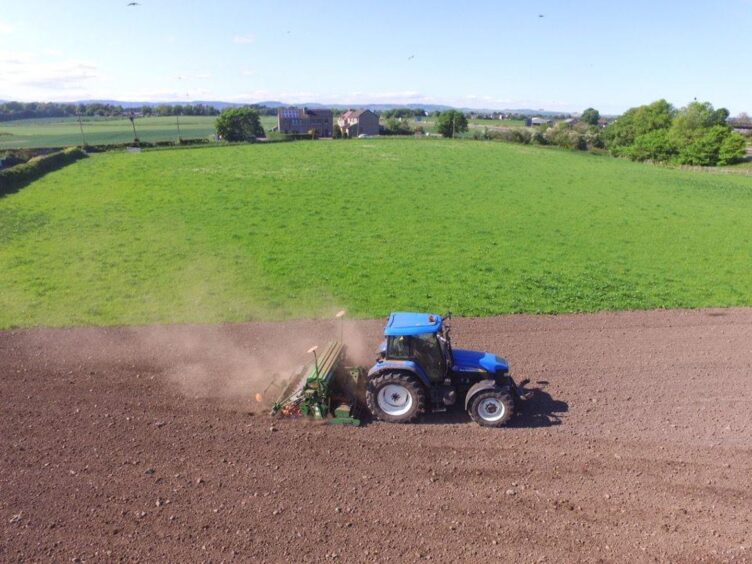Angus landowner Dee Ward has warned planned inheritance tax changes will have a “profound impact” on Scotland’s rural communities and economies for decades to come.
He also described the UK Government’s intransigence over the issue as “a matter of severe dismay”.
Mr Ward was speaking in his role as chairman of rural business organisation Scottish Land & Estates (SLE).
Treasury trip leaves union chiefs angry
His comments come hot-on-the heels of Britain’s four farming unions getting the cold shoulder treatment at Westminster,
A delegation including NFU Scotland president Andrew Connon left Tuesday’s meeting with Treasury officials angry at the government’s unwillingness to consider any compromise over its controversial inheritance tax plans.
It is feared the loss of valuable agricultural and business property reliefs from April 2026 will hit the industry hard.
According to SLE, Tuesday’s meeting amounted to little more than a box-ticking exercise for government.
Mr Ward added: “For the UK Government to ignore the farming and rural sector for so long, and then refuse to properly engage once it did finally come to the table is a matter of severe dismay.
Sadly, the UK Government is failing to act in good faith towards the sector.” Dee Ward, Scottish Land & Estates
“Across the industry, there was a hope that although the UK Government had got its proposals wrong at the outset, there would be a willingness to work collegiately to find a solution that could be accepted – if not liked – by all involved.
“It is now clear, sadly, the UK Government is failing to act in good faith towards the sector or consider any evidence being provided.”
PM’s approach ‘simply unconscionable’
He continued: “On one hand, the government is elected on a manifesto that states that food security is national security.
“But on the other, the prime minister suggests in recent days that a binary choice exists between reducing NHS waiting lists and providing ‘tax breaks for farmers’. That is simply unconscionable.”
SLE has called for rural impact assessments to be conducted, fearing changes to agricultural property relief (APR) and business property relief (BPR) may affect Scotland’s tenanted sector.
Scottish farms are different
Mr Ward, who owns and runs Rottal Estate in the Angus Glens, said: “How farming businesses are owned and operated in Scotland is very different from other parts of the UK, particularly in legalities around tenancies.
“The impact of tax reforms is not simply APR, there are also the changes to BPR which will impact all family businesses and have a particular effect on forestry enterprises, as well as diversified farming businesses.
“Added to further costs, such as employers’ National Insurance, it has meant the potential tax bill for many rural businesses has risen substantially.
“The UK Government has shown little willingness to engage with organisations like ours.
“For years we have called for mandatory rural impact assessments to ensure policy decisions are made with proper consideration for the realities of rural life.
“This is a prime example of why such assessments are needed.
Farming futures at stake
“These tax changes will not just affect a handful of farmers – they will have a profound impact on the future of Scotland’s rural communities and economies for decades to come.”
The Treasury has insisted its tax reforms will impact just over a quarter of all UK farms.














Conversation